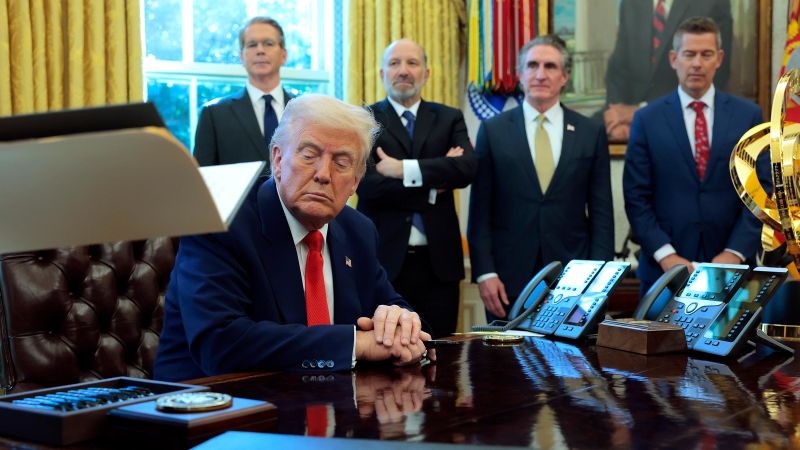Trump's Tariff Plan Now Open to Negotiation
The 90-day pause on tariffs will allow the US to renegotiate with key trading partners, potentially averting a bond market catastrophe and mitigating the economic impact of the tariffs. The move is seen as a significant retreat from Trump's earlier position, and may mark a new era of cooperation and negotiation in US trade policy.

President Trump has paused his sweeping tariff plan, citing the need for flexibility in financial markets, after a week of intense market losses and criticism from fellow Republicans, business executives, and even close friends. The decision to pause the tariffs was prompted by fears of a bond market catastrophe, with the Treasury Department's concerns driving the reversal.
The White House's economic team, including Treasury Secretary Steven Mnuchin, had become increasingly alarmed about the potential economic ramifications of the tariffs, which were intended to make the US more competitive. However, the plan was met with market plunges and criticism from Democrats, with Trump's advisers warning about the potential for higher interest rates. The 90-day pause will allow for negotiations with countries such as Canada, the EU, and Japan, but an exception is made for China, with tariffs remaining at 125%.
The decision was seen as a stunning reversal of Trump's earlier stance, with even his own trade representative seemingly unaware of the change until it was announced. Trump's reversal was influenced by the White House's desire to negotiate with countries, rather than imposing tariffs, and was also a victory for his senior adviser, Treasury Secretary Steven Mnuchin, who had been pushing for a more measured approach. The move has been seen as a victory for Trump's critics, who had argued that the tariffs would harm the economy and the stock market.
The pause is expected to last for three months, and will be closely watched by markets and lawmakers. The decision marks a significant shift in Trump's approach to trade policy, and may signal a more open and flexible approach to negotiations with other countries. As the administration moves forward with negotiations, it remains to be seen whether the pause will lead to meaningful agreements or simply delay the inevitable implementation of the tariffs.